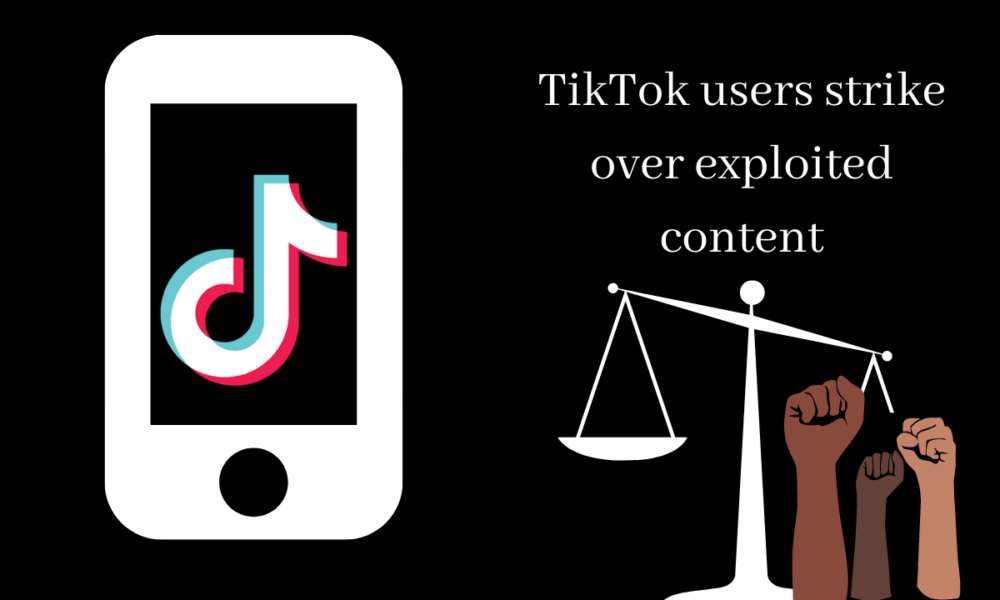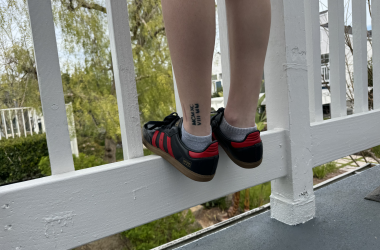In America, Black people have historically and systemically been regulated, exploited and profited from.
Whether it’s rock n’ roll stolen from Sister Rosetta Tharpe or clothing designed by Black designers being stolen by fast-fashion companies such as Shein; it is an American tradition for Black culture and creativity to be continuously stolen.
There is no exception online. Inequity involving race trickles into every aspect of life, including TikTok. On the app, Black creators frequently create dance trends that their white counterparts eagerly duplicate, or are the voice behind videos other creators make TikToks to.
“When you look at TikTok, and the dance trends and music trends, that is all reminiscent and born out of Black culture and Black creativity,” social media influencer, Jasmine Moore said.
Despite playing an integral role in content creation on the app, Black creators are undermined. Though the roots of many TikTok trends are embedded in Black culture, the most popular and profitable TikTokers—like Charli D’Amelio and Addison Rae— are white.
When Jalaiah Harmon created the renegade dance that started a TikTok trend, the NBA invited white TikTok influencers to teach Harmon’s dance on the basketball court.
This past summer, Black creators went on strike, refusing to create a dance to Megan Thee Stallion’s hit song “Thot Shit.” It was quickly apparent how much TikTok depends on Black creators for choreography.
More concerning is the parallel of white creators caricaturing Black people to blackface. Historically, white people painted their faces black and acted as racist stereotypes for entertainment.
Though their faces aren’t painted, white creators often create content using Black voiceovers and act out similar exaggerated stereotypes.
Because Moore’s experience on TikTok has exposed her to the inequity that she describes as “rampant” on the app, she doesn’t create much on TikTok.
Moore still likes to use the app to support other Black creators but noticed how many of them were talking about their content being suppressed or shadow banned.
“The way that the world sees Black creativity is like a grab bag,” Moore said. “People just take what they want from it, and then they leave the Blackness behind and make it their own.”
Some Black creators have discussed creating their own platform to counter the regulations and restrictions of TikTok, but Moore emphasized that Black creators shouldn’t have to segregate themselves to have the same experiences as white users.
Though it can be easy to forget, the app was created for us. However, Moore mentioned how the app is the one winning, as most creators produce free content for it. Because of that, it’s imperative to hold platforms like TikTok accountable for creating equitable space for users to enjoy.
As we strive for a more equitable world, it is essential that we see how inequity creeps into every aspect of our lives. It is present even when you are swiping on your phone.
“It needs to be a sustained effort to make sure that apps are more equitable space,” Moore said. “Just because everyone can download the app does not mean that the app is an equitable space for everyone.”
Making TikTok more equitable will take the corporate conversation, which will only be sparked if users demand it. By being conscious of how you use the app, you will start to see the discrepancies.
By simple things like reposting the original creator’s video rather than the version the more affluent influencers post, or commenting under users’ videos telling them to give credit to the creator, you can help uplift and engage with Black creators.
Before you hop on the latest TikTok dance trend, remember to give credit to the creator. Make the constant effort to engage and uplift Black creators because without them, the app would be lost.




